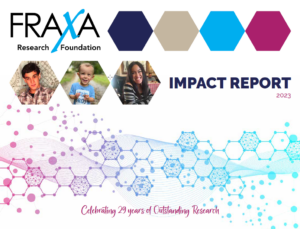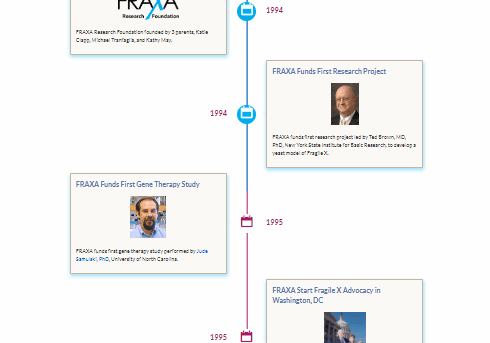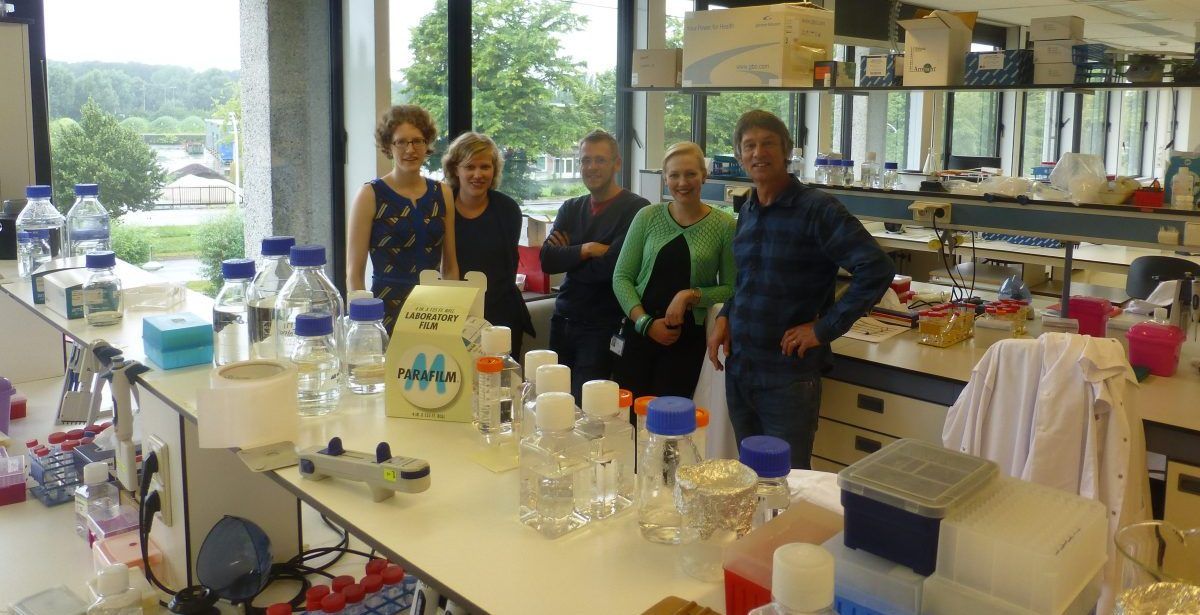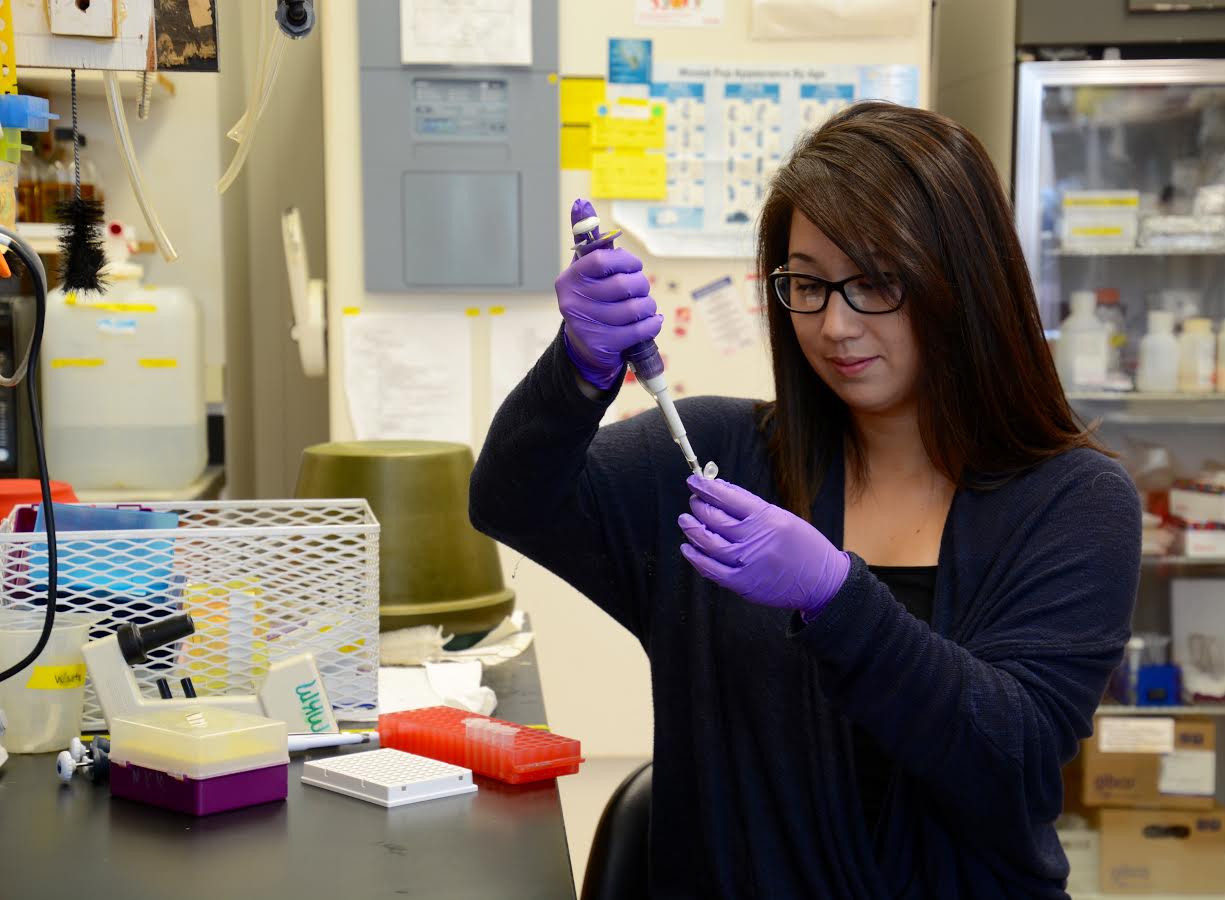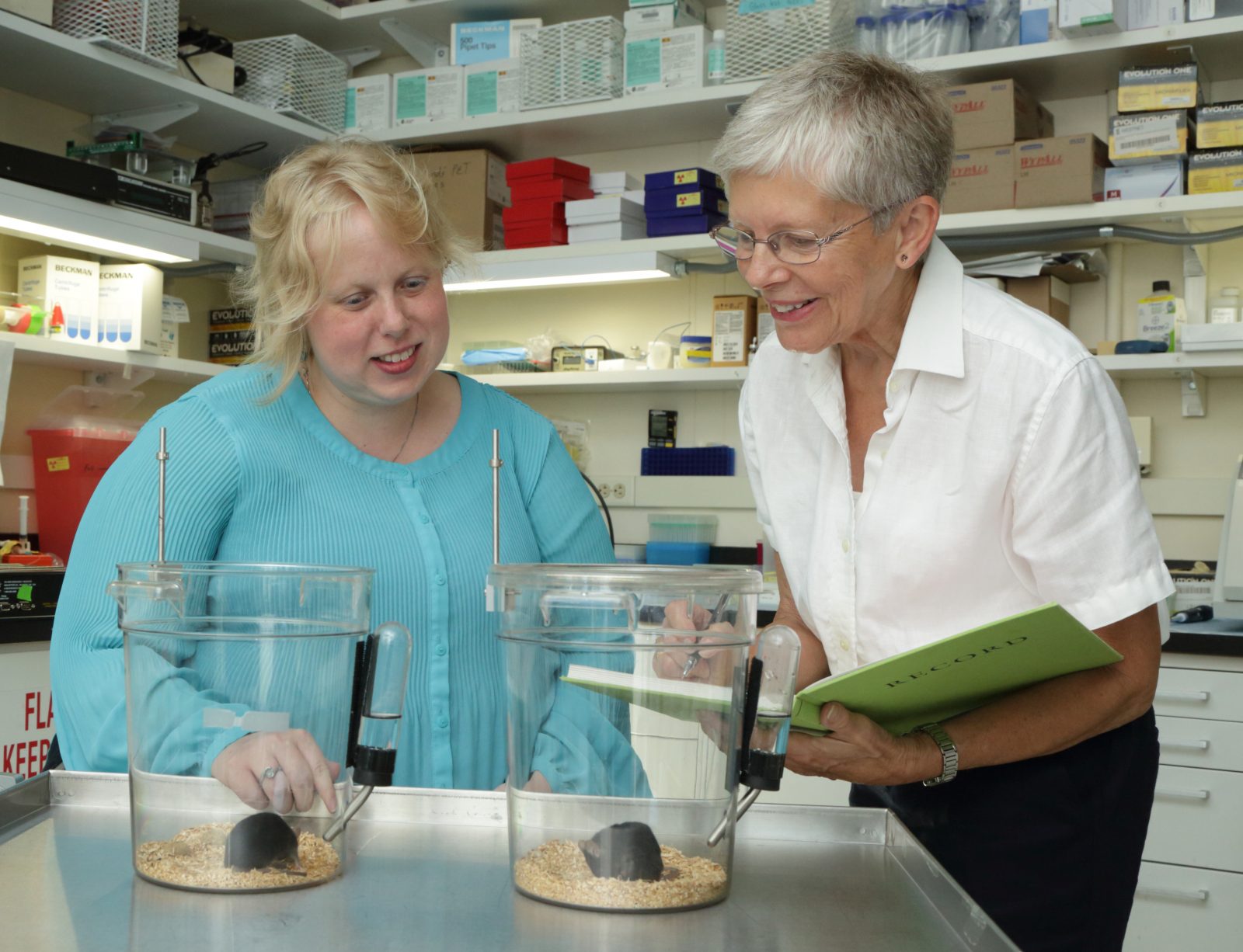Discovering Effective Treatments & A Cure for Fragile X Syndrome
Your support enables FRAXA Research Foundation to fund groundbreaking research and life-changing clinical trials.
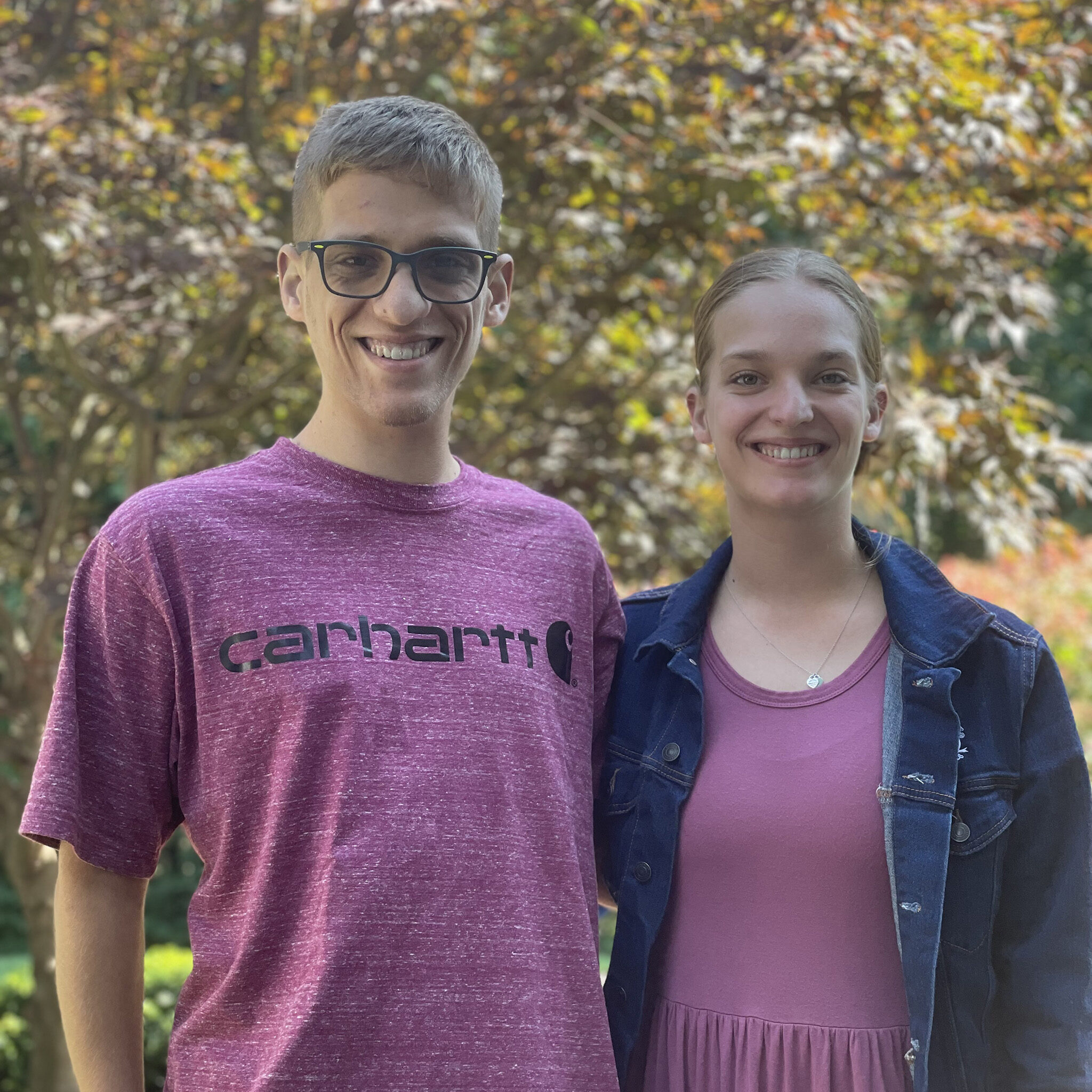
FRAXA's Impact to Date
$34.8M
Direct Investment in Fragile X Research
32
Teams Actively Researching Fragile X Syndrome
33
Pharmaceutical and Biomedical Partners
641
Fragile X Research Grants Awarded
How Does FRAXA Help?
FRAXA’s mission is to find effective treatments and ultimately a cure for Fragile X syndrome. We directly fund research grants and fellowships at top universities around the world. We partner with biomedical and pharmaceutical companies, large and small, to bridge the gap between research discoveries and actual treatments.
Treatments for Fragile X are likely to help people affected by autism, Alzheimer’s, and other brain disorders.
What is Fragile X Syndrome?
Fragile X syndrome (FXS) is the most common inherited cause of autism and intellectual disabilities. It affects 1 in 4,000 boys and 1 in 8,000 girls worldwide.
Fragile X syndrome occurs when a single gene on the X chromosome shuts down. This gene makes a protein needed for normal brain development. In FXS it does not work properly, the protein is not made, and the brain does not develop as it should.

